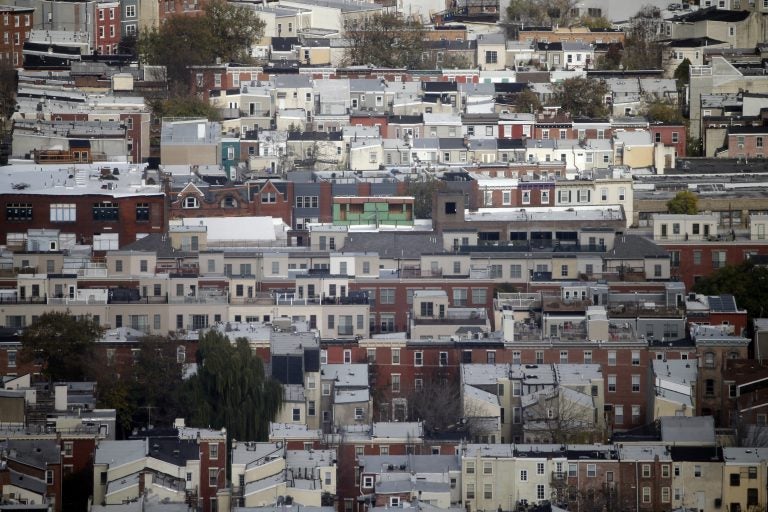Philadelphia uses threat of property takeover to collect overdue taxes
The city begins sequestration proceedings against tax-delinquent landlords to collect what it's owed. Renters are not threatened during the process.

File photo: Philadelphia rowhouses. (Matt Rourke/AP Photo)
The City of Philadelphia is taking over properties to make sure the taxes it is owed are paid. The process known as sequestration is designed to take all profits from a rental property and devote it to paying off outstanding taxes.
Frances Beckley of the city’s revenue department said it is not foreclosure.
“The critical legal difference from the tenant’s perspective is that when we foreclose on property, the property is sold free and clear — and that includes free and clear of the lease. The tenant is evicted at the owner’s discretion,” she said. “If we put it into sequestration, the lease stays in place, and the tenant has all the rights preserved there.”
Just the notification that a property is being put into sequestration acts as a powerful tool, Beckley said.
“Half the landlords pay when they get the first letter, telling them that we are going to do it,” she said. “Another quarter pay the minute when we file the petition with the court.”
Any money from rent — after expenses — goes to pay for overdue and, soon, water bills, Beckley said.
The average payment that we brought in the fiscal year 2016 from taking a property was $6,000,” she said. “Now, it’s about $2,300. We’ve started with the big ones, we’ve picked off the good stuff, and that’s why we are now turning to water.”
The program has generated $80 million in back taxes over four years.
WHYY is your source for fact-based, in-depth journalism and information. As a nonprofit organization, we rely on financial support from readers like you. Please give today.




